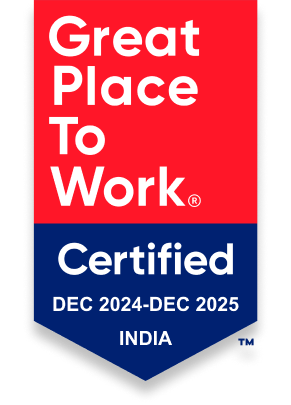Single Blog
- Home
- Healthcare Standards
Quick Links
Help & support
Site Information
GSTIN: 29AAACX1461F1ZE
CIN: U72200KA2013PTC071033
Service Inquiries
Location
Bengaluru
No. 96, J. B. Arcade RBI East Layout Wilson Garden Housing Society Kothanur J. P. Nagar 7th Phase, Bengaluru – 560 078 Karnataka, India
Hyderabad
Ground floor, DSL Abacus IT Park, Survey Colony, Industrial Development Area, Secunderabad, Telangana, Hyderabad – 500039
USA
Xyram Software Solutions LLC,
8865 Stanford Blvd, Columbia,
MD-21045, USA




Healthcare Standards
According to one of the analyst reports, the U.S. healthcare system could save up to $265 billion annually by reducing administrative complexity. Historically, fragmented systems have led to repeated tests, treatment delays, and higher medical errors. Achieving these savings requires … robust healthcare standards like HL7 FHIR, CCDA, HL7v2, EDI, and eCQM.
Introduction
According to one of the analyst reports, the U.S. healthcare system could save up to $265 billion annually by reducing administrative complexity. Historically, fragmented systems have led to repeated tests, treatment delays, and higher medical errors. Achieving these savings requires robust healthcare standards like HL7 FHIR, CCDA, HL7v2, EDI, and eCQM. These standards streamline data exchange, reduce administrative tasks, and ensure system interoperability. They define protocols for secure and efficient data transfer, protecting sensitive patient information from breaches and fines by standardizing information exchange between healthcare providers, labs, payers, and other stakeholders. By enabling seamless data sharing and interoperability, these standards not only improve patient outcomes but also significantly cut costs. In this blog, we’ll explore the different interoperability standards, their applications, and their benefits.
What Are Healthcare Standards?
Healthcare standards are a set of protocols and guidelines designed to ensure the secure, efficient, and accurate exchange of health information. These standards are crucial for maintaining data integrity and confidentiality across various healthcare systems. Key standards include HL7 FHIR, CCDA, HL7v2, EDI, and eCQM, each playing a unique role in data management and interoperability.
The Role of HL7 FHIR in Modern Healthcare
HL7 FHIR (Fast Healthcare Interoperability Resources) helps different healthcare systems share information using web technologies. It uses APIs to allow real-time data sharing between healthcare applications, making it easier to connect various systems and improve patient care.
For example, when a patient visits multiple doctors, their medical records can be updated and accessed immediately across different platforms. This speeds up the sharing of crucial health information, reduces the risk of errors, and prevents treatment delays. Without HL7 FHIR, connecting new healthcare applications to existing systems would take much longer and cost more.
Understanding CCDA: Consolidated Clinical Document Architecture
CCDA standardizes clinical documents so they can be easily shared between different healthcare systems. This helps providers keep accurate and comprehensive patient records, which is crucial for quality care.
For instance, when a patient is discharged from the hospital, their discharge summary can be shared with their primary care provider in a consistent format. This ensures all necessary information is communicated clearly, preventing miscommunication and ensuring continuous care. Without CCDA, sharing patient records between different systems would be much more challenging.
HL7v2: The Foundation of Clinical Messaging
HL7v2 is a common standard for sharing clinical information in real-time. It supports various healthcare processes by using structured messages to send data like lab results and patient admissions.
For example, when a lab test is completed, HL7v2 allows the results to be sent immediately to the healthcare provider’s system. This speeds up diagnosis and treatment, supporting efficient clinical workflows and better patient outcomes. Without HL7v2, sharing such information would be slower and prone to errors.
The Importance of EDI in Healthcare Administration
EDI (Electronic Data Interchange) automates administrative tasks like insurance claims and eligibility verification, reducing manual work.
For instance, when a healthcare provider submits a claim to an insurance company, EDI processes it quickly and accurately, speeding up reimbursements and reducing administrative work. This automation improves data accuracy and operational efficiency. Without EDI, these tasks would be more labor-intensive and error-prone.
eCQM: Enhancing Quality Measurement
eCQMs (electronic Clinical Quality Measures) are standards used to measure healthcare quality using data from electronic health records (EHRs).
For example, eCQMs can track how well a provider manages chronic conditions like diabetes, ensuring they follow best practices and improve patient outcomes. This helps with performance benchmarking and quality improvement. Without eCQMs, measuring healthcare quality would be inconsistent and challenging.
Conclusion
Healthcare standards are essential for making sure that patient information can be shared quickly and safely between different systems. These standards help avoid the issues that come with disorganized data, making healthcare more streamlined and effective. By using standards like HL7 FHIR, CCDA, HL7v2, EDI, and eCQM, healthcare providers can enhance data sharing, improve patient care, and cut down on administrative work. These standards aren’t just technical details; they’re key to a better, more reliable healthcare system. By embracing these standards, healthcare organizations can be better prepared for the future of health data exchange.
How Xyram Can Help
At Xyram, we specialize in providing standards and interoperability advisory and analysis services. We help healthcare organizations implement HL7 FHIR, CCDA, HL7v2, EDI, and eCQM standards effectively. Our services include:
Partnering with Xyram means navigating the complexities of these standards with ease, achieving compliance, and delivering better patient care. Contact us today to enhance your healthcare data exchange capabilities.
Recent Posts
Categories
Tag Cloud